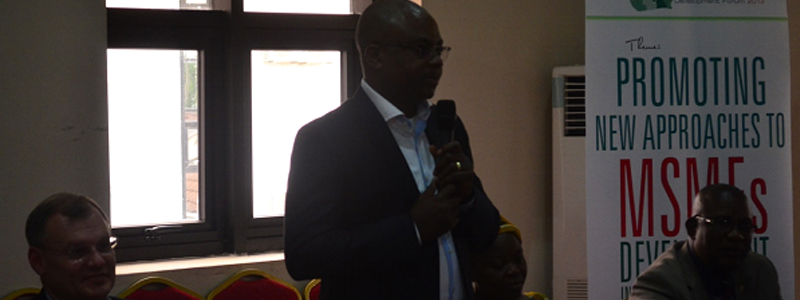
PIND Answers Questions on NDDF Ahead of Forum
November 26, 2013
Impact of projects in the Niger Delta
December 23, 2013Since the UN Millennium Declaration, which advocated for free access to information and communication technologies (ICT) for all, ICT and the Internet in particular, have been lauded as important tools for sustainable development. Most development practitioners agree that ICT helps build more fair, equitable and diverse societies while opening up economic opportunity.
Access to ICT in Nigeria has spread remarkably in recent years as evidenced by the surge in the number of personal ICT devices and Internet connections, particularly mobile phones and broadband. This trend offers new avenues for reaching target communities, coordinating across stakeholder groups, and sharing information.
ICT training and internet access are policy priorities
The recent announcement of the Nigerian Federal Executive Council (FEC) to provide ICT courses for government workers, and training for 500 non-militant youths in the Niger Delta at a cost of approximately N258 million (US$1.63), highlights the government’s commitment to ICT as a tool for development. Support for ICT in the Niger Delta builds on initiatives at the national level, including the 2013-2018 National Broadband Plan, and the 2013 Nigeria Internet Governance Forum. International donors are also focusing on extending the energy grid in the region to ensure access to telecommunications, which will build a more reliable and robust ICT infrastructure.
The spread of ICT through private investment
The private sector has been the driving force behind Nigeria’s ICT revolution. According to data from strategic advisory firm Dalberg, private companies led over 95% of investments in telecoms in the country between 1990 and 2010.  Those investments have been coupled with community programs to educate Nigerians on the power of ICT. In June this year, the Rockefeller Foundation hosted roundtable discussions in Lagos to discuss reducing youth unemployment through ICT. The event was attended by government, civil society organizations, and private companies including Microsoft.
In the Niger Delta, international oil companies, which account for the bulk of foreign investment, actively support access to ICT as part of their community engagement. Recently, Shell Nigeria established ICT centers in secondary schools and funded Centers of Excellence at two Nigerian universities.  Chevron channels much of the company’s support for ICT training and investments in technology through its US$50 million endowment for the Foundation for Partnership Initiatives in the Niger Delta (PIND). Labelled a ‘corporate social enterprise’, PIND promotes development in the Niger Delta through market forces and uses Chevron’s contribution and that of other donors to finance development programs in the region. To promote the use of ICT in education, PIND has partnered with the Schlumberger Excellence in Education Development (SEED) that provides selected schools with computer labs, free internet access, and computer training for teachers. Among other things, PIND has forged links with Engineers Without Borders Nigeria (EWBN) to provide students with training on planning for solar power installations and energy audits.
The information gap obstructs sustainable development
In a region as vast and geographically fragmented as the Niger Delta, timely access to reliable information on employment opportunities or training courses poses a challenge. A PIND study conducted in 2011 found that most Niger Delta youths who completed basic government-funded ICT courses did not pursue additional training due to a perceived lack of job opportunities upon completion.
Jobseekers residing in rural areas often have to travel for days in the hope of being able to schedule an interview. Unemployment rates are among the highest in the country although job markets in the region are dynamic, and the Niger Delta Action Plan, which was launched in April 2013 and strives to pool $10 billion in investments, illustrates commitment from government authorities.
The information gap also affects the private sector. International corporations that represent a crucial source of employment in the region face difficulty hiring skilled staff. Even smaller companies based in the Niger Delta looking to support projects and programs funded by foreign direct investment and international aid in the region struggle to find the right staff and bid effectively on project engagements.
During the negotiations preceding the signing of the Niger Delta Action Plan, participants highlighted stakeholder coordination as one of the primary obstacles to the sustainable development of the region. A lack of information sharing meant that successful development projects failed to be replicated, while less effective projects were sometimes duplicated.
An online platform for stakeholder engagement
PIND’s special status as a corporate social enterprise has allowed the organization to approach ICT in a holistic fashion, using market-based approaches but operating independently of a particular company’s corporate strategy.
PIND’s latest initiative to utilize ICT for sustainable community development and respond to the burning issue of youth unemployment in the Niger Delta is NDLink. According to Chichi Nnoham-Onyejekwe, PIND’s Knowledge Systems Manager, NDLink will serve as an “online platform through which local and international actors can share and contribute information and knowledge on Niger Delta development and through that will build partnerships, expand capacity and coordinate with one another.â€
NDLink seeks to transform the Niger Delta into a more open marketplace by providing information on opportunities and highlighting the main challenges to sustainable development through news updates and feature stories. An interactive tool, NDLink will encourage citizens and stakeholders in the region and across the world to stay involved through developing and sharing original content, thereby increasing transparency and building knowledge.









